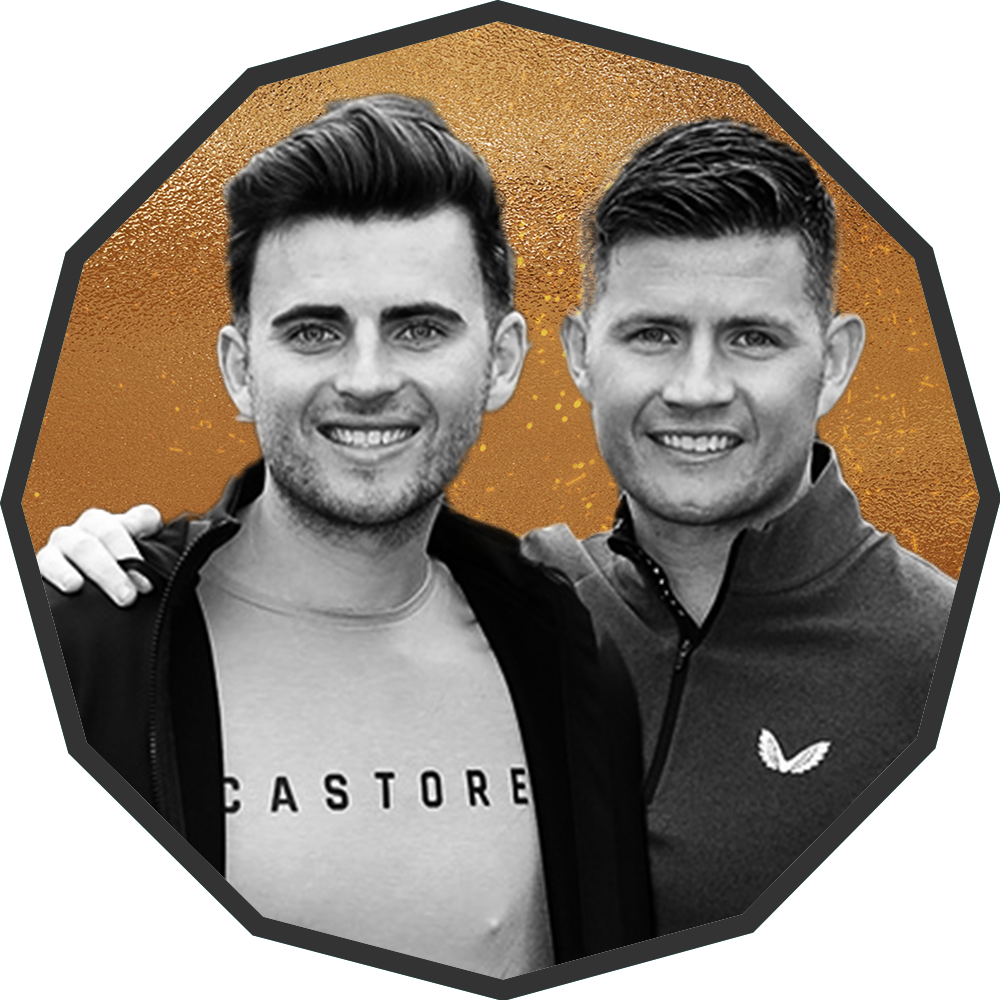The Disruptors
The people disrupting traditional retail models and shaking up industries, keeping the sector on its toes

Mike Ashley, founder, Frasers Group
The Sports Direct founder moves this year from the Strategists’ category to the Disruptors – and for good reason. Mike Ashley has had a particularly explosive year to date, with takeover attempts, controversial real estate plans and extending family business ties all in the mix. Although Ashley stepped down from running Frasers Group, the empire of retail brands he started in 2022, he retains 73% of the shares and still calls many of the shots.
In 2024, that involved Frasers’ September takeover bid of luxury bag brand Mulberry, which was thwarted by other investors. Frasers upped its stake in the company anyway, and currently owns about 37% of its shares.
In October 2024, Ashley set his sights on Boohoo, with a public bid to be installed as the troubled fast-fashion retailer’s chief executive. Despite Frasers owning over 29% of Boohoo, Ashley’s bid for control – conducted through a series of bruising public letters – was voted down by the group’s other shareholders. They contended that Ashley saw Boohoo as a competitor and might even intend to scupper the business once in control. But Ashley, who has a history of challenging management, could also have been targeting these companies for takeover to expand his already-large empire, intending to restructure them to align with his vision.
Finally, the group received planning permission for a controversial new 4 million sq ft headquarters in Warwickshire on Christmas Eve 2024; a fittingly dramatic end to a year of continued influence and increased disruption from Mike Ashley.

Philip and Tom Beahon, founders, Castore
Manchester-based premium sportswear brand Castore continued its meteoric rise in the year to May 2025, with the opening of stores across the UK and the acquisition of one of its main suppliers.
In 2024, brothers Philip and Tom Beahon said they planned to open 24 UK stores by the end of the year. Their site now lists 27 locations, mostly in the UK. Another five to 10 are in the works for the coming year, the retailer said in January, when it also reported a “record Christmas” of sales. December revenue leaped 16% year on year, with its store in the Dubai Mall its “highest revenue generating” location.
Lucrative tie-ups continue to pay dividends. 2024 research from data and analytics firm Ampere found that Castore had more sponsorship deals within the UK across the Premier League, EFL Championship, Formula 1, English Premiership, and the England and Wales Cricket Board than any other single company. This is a massive feat for a disruptor that entered the space less than a decade ago, showing the extent to which it’s becoming a thorn in the side of more established sportswear brands.
In Castore’s stores, football shirts are selling well, alongside Formula 1 merchandise and products aimed at women. The founders say they remain “bullish on the high street” and on women’s sport, despite tough times for some in the industry.
In May 2024, Castore bought Infinity Inc, a Leeds-based manufacturer and one of its main suppliers, with a view to strengthening its supply chain.

Tom Brown, EMEA president, SharkNinja
SharkNinja entered the UK market in 2014, but it’s the electrical brand’s recent growth that has seen it really start to shake things up. Its full-year results, published in February 2025, showed a year-on-year net sales increase of 30% to $5.5m (£3.27m) in 2024. Much of that growth was achieved through expansion to the UAE, Turkey, Hungary and Poland.
Tom Brown says success is based on a laser focus on what customers want and like, which ties into its model of direct-to-consumer sales through high street retailers like John Lewis, Argos and Amazon. Listening to customers is the brand’s “secret sauce,” Brown told Retail Week in September 2024. “We won’t launch a product unless the customer gives it a five-star rating.”
Though sales of the company’s signature air fryer may have slowed, it has a slew of customer-tested new products ready to hit the market.

Niran Chana, CEO, Adanola
Niran Chana joins the Retail 100 for the first time this year, having taken over as chief executive of athleisure brand Adanola just one year ago from founder Hyrum Cook. Chana moved to the brand from Gymshark, where he managed global sales, and joined Adanola at a time of spectacular growth.
Founded in 2015, the company reported turnover up by 105% in the full year to March 2024. The latest financial report in December also showed that pre-tax profit had more than doubled to £19m in 2024.
The brand continues to innovate, launching a childrenswear line in December 2024. In 2025, it announced the launch of a collection with model and reality TV star Kendall Jenner, capitalising on the success of its affordable (at £40) and extensively well-reviewed Ultimate Leggings. Who knew such a simple piece of clothing could be disrupted with such noteworthy success?

Mikkel Grene, CEO, Søstrene Grene
Mikkel Grene has been involved in Søstrene Grene, a family business selling Skandi-influenced homeware, all his life. Grene featured in Retail Week’s Ones to Watch last year, and leaps into the main list following a couple of particularly impressive years for the brand, which launched in the UK in 2016.
March 2025 brought the opening of a two-storey flagship store near Oxford Street. Focused on the shopping experience, it has long wooden shelves loaded with brightly-coloured or natural-material products, typically sold at affordable prices. Its website features an extensive range of products in categories including home (filtered by room as an option), creativity and children.
Søstrene Grene plans to reach 100 locations in the UK by 2030 (up from 45 currently) and has around 300 stores worldwide. The retailer has come a long way since Grene’s childhood when he and his brother – with whom he still co-owns and runs the business – used to fall asleep in a cardboard box in the corner of his parents’ idiosyncratic store. But maybe some of its success comes down to retaining a bit of that comforting, home-made feel.

Orlagh McCloskey and Henrietta Rix, founders, Rixo
Rixo was founded in 2015, after Henrietta Rix and Orlagh McCloskey met at the London College of Fashion and bonded over knowing no one in the city. Their fashion brand, inspired by vintage prints and with a vision of helping individuals express themselves, has since gone from strength to strength with thriving sales through shops, their website (where they also rent clothing) and collaborations like their tie-up with Selfridges. In November 2024, they expanded into homewares, something the duo had long planned.
The young pair, both in their thirties, also expanded into the US, with a pop-up shop on New York’s Prince Street becoming permanent.
In April, Rixo launched a collaboration summer capsule collection with basket-bag maker Dragon Diffusion and went on to open its first store in Ireland in May. They brought in £18.7m in sales in the year to June 30, 2024, and will be closely watched as they continue to expand and innovate.

Jody Plows, CEO, Nobody’s Child
2024 was the year Nobody’s Child, which sells online through its site as well as through 60 shop-in-shops in M&S stores (the big retailer is also an investor), began to develop a bigger high street presence of its own.
The fashion disruptor’s flagship opened on Neal Street in Covent Garden in August 2024, the third London store after Carnaby Street and Spitalfields. The Covent Garden branch will be used for filming social media try-ons and other content, as well as being a destination for the brand’s burgeoning customer base.
With a continued twin focus on sustainability and affordability, Nobody’s Child under Plows’ watchful eye is finding the sweet spot in the sometimes-difficult women’s fashion marketplace.
The company’s revenue more than quadrupled between 2022 and 2024, hitting £26m, with net sales forecasted to grow a further 50% in the year to May 2025.
In September 2024, Nobody’s Child, famed for its focus on dresses with iconic outlines, said it would branch out into cosmetics, with its Goddess Collection of makeup and scents retailing through John Lewis, M&S and Boots, as well as its own stores. Plows has also overseen canny collaborations with presenter Fearn Cotton, as well as Elizabeth Scarlett, a brand known for detail and embroidery.

Joseph Price, MD, Modella Capital
A fascinating new entrant to Retail 100 this year is Joseph Price, managing director of Modella Capital. The private equity firm is undoubtedly influencing UK high streets in 2025. Modella styles itself as a specialist retail and consumer investment boutique and has been snapping up some of the UK’s most recognisable businesses, including the high street arm of WHSmith. In March 2025, it revealed it was aiming to capitalise on the stationer’s market share and existing partnerships by keeping the 480 stores open while rebranding them to TGJones, and maintaining the in-store services run by Toys R Us and the Post Office.
Modella also owns The Original Factory Shop and bought Hobbycraft in August 2024 – it is mulling a restructuring of the arts-and-crafts specialist, which currently has 100-plus stores across the UK. In March 2025, Modella emerged as a bidder for homewares chain Lakeland. Price spent years at Kroll and AlixPartners within the retail and consumer teams, specialising in turnarounds and restructuring. Other retailers are likely to be asking what other takeover targets might be in his sights.

Doug Putman, owner, HMV
When Doug Putman bought HMV out of administration in 2019, few would have believed it was possible to turn the struggling retailer of music around in the age of Spotify.
But Putman’s vision has been at least partly borne out. The music specialist reopened the doors of its iconic Oxford Street location in 2023, though in early 2025, Putman paused further bricks-and-mortar expansion, citing a poor post-Budget climate.
Sales at HMV have, however, more than doubled in the last three years. Turnover was £189.5m for the 12 months to May 30, 2024, up from £177.9m the previous year. Putman also hired former music promoter Phil Halliday as managing director.
Putman is clearly on the lookout for more properties. In 2023, he was linked with possible rescues for Wilko and The Body Shop, and in 2024, mulled saving Homebase from administration. In the past year, he was also in the running to buy WHSmith’s high street locations, ultimately snapped up by Modella Capital.
He’s outspoken, telling The Mirror in November that businesses should pay tax and that tech giants should be better scrutinised. “At some point, someone is going to have to step in and force these large conglomerates – like Google and Amazon – to pay their fair share,” he said. “It’s crazy to me.”

Rachel Reeves, chancellor of the exchequer
Once Rachel Reeves delivered her divisive Budget last year, her place in the Retail 100 was assured. The chancellor of the exchequer, since July 2024, might be unpopular with retailers, but her impact on the industry is one of the most significant of the past 12 months, and the effects of her Budget could be felt for years to come.
It would be fair to say there is a general sense of being let down among retailers, many of whom cite Reeves’s policies, including changes to national insurance, as chilling business, when the incoming government had promised to promote growth.
Many retail leaders said that the Budget exacerbated a challenging cost environment, and some have placed expansion or hiring on hold. Reeves has a tough job, but angered retailers with the lack of time the industry was given to prepare for additional costs.
In a speech in December 2024, Reeves said: “At the Budget, I wiped the slate clean after 14 years of chaos and mismanagement of our public finances, and I have brought stability back to our economy, so that we can get on with fulfilling our promise of change... while ensuring that working people do not face higher taxes in their payslips.” Whether the Budget achieves what she hopes for will become evident in the coming months and years.

Donald Trump, US president
Who is more of a Disruptor to the retail world order than US President Donald Trump?
In his second term in office, Trump has steamrollered the international trade status quo with the imposition, via executive order, of tariffs on imports from a huge array of countries. The tariffs targeted China in particular, but will potentially lead to sweeping changes in the way businesses across the world access US markets – or don’t.
In April, Trump put a 104% levy on Chinese goods imported into the US, with China responding by raising its tariffs in a tit-for-tat exchange. The EU saw 20% tariffs imposed, and the UK was lumped in with the 10% tariffs imposed on all imports. Trump also suspended the de minimis exemption for China and Hong Kong, which allowed packages valued less than $800 (£596.84) to enter the US without being subject to customs fees. That could have a massive impact on retailers like Shein and Temu.
The situation continues to change. Trump is nothing if not unpredictable, often appearing to make snap decisions and issuing plenty of threats, only some of which come to fruition. UK retailers are making a range of plans in reaction, including some mulling an end to American exports, while others consider setting up US subsidiaries.

Saad Usman, COO, Miniso
Miniso, the Chinese lifestyle brand specialising in cute knick-knacks, continued its UK expansion over the past year. Saad Usman pressed on with the “Life Is For Fun” slogan that the brand seems to have found successful in marketing its plushy-heavy offering. His operational and financial experience – underpinned by a diverse accountancy background – as well as his understanding of the retail and FMCG markets, are paying off for Miniso.
Globally, Miniso is posting some huge increases. In its full-year statement for 2024, the company said total group revenue was up 22.8% year over year to ¥16.99bn (£1.75bn). Operating profit increased 17.6% to ¥3.316bn (£342.7m). The group had 7,780 stores globally by the end of 2024, an increase of 1,219 new stores over the year.
New store openings in the UK targeted travel hubs under the Miniso-Go brand, while stores continued to offer a growing range of products themed around popular estates including Harry Potter, Hello Kitty and Disney.

Jan Wilk, head of operations, TikTok Shop
The TikTok Shop bursts onto the Retail 100 this year, representing burgeoning social commerce more widely.
As head of operations, Jan Wilk has been driving new ways of shopping and helping foster an evolving interaction between brands and consumers. In July 2024, TikTok launched a plan to help new merchants on the platform grow to £1m in revenue through a series of incentives and support.
The plan came after news that beauty specialist Made By Mitchell had become the first-ever brand in the UK to hit $1m (£746,000) in one day on the platform, driven by a 12-hour live sales marathon.
In September, the shop followed up with a weeklong sales event in the UK. Growth has been rapid. TikTok Shop sales skyrocketed 180% year on year, according to the latest data, and was named the fastest growing platform in the UK in 2024 by Neilson IQ.
Wilk said that expansion into Europe was the natural next step, telling a March event that TikTok Shop was launching in Germany, France and Italy, where new customers would be able to experience the “power of discovery commerce” for themselves.

Trinny Woodall, CEO, Trinny London
British entrepreneur Trinny Woodall’s beauty brand moved up a gear in 2024 with the opening of its first physical store on the renowned King's Road in west London in September.
The two-storey shop includes breakout areas and interactive spaces, and features a “meet your match” room designed to provide shoppers with more personalised experiences. The store also offers consultations and hosts events.
Trinny London was founded in 2017 and predominantly targets women over 35. Before converting its pop-up into a permanent shop, the brand launched in department stores including Harvey Nichols, Liberty and Fenwick. It is expanded into eight John Lewis concessions in 2025.
The brand has a strong social media marketing game. Trinny London has 600,000 Instagram followers, and Trinny herself 1.4 million, regularly appearing to host workouts, makeup tutorials and talk about her life and beauty regimes.
Revenue hit £70m in the year to March 2025, with a customer base of 1.2 million.

Joe Wykes, CEO, Jollyes
The last 12 months in pet care have been characterised, in large part, by competition between the biggest player, Pets at Home, and disruptor Jollyes.
While Pets at Home has had some public struggles, Jollyes’ Joe Wykes is presiding over a growing empire, and one with a laser focus on price. After a strong Christmas 2024, during which the pet care retailer’s like-for-like sales rose 6% and total sales grew 13% in the four weeks to Christmas Eve, Wykes announced a strategy of everyday low prices, rather than battling it out through promotions or loyalty pricing. Its Pet Club members will still be able to collect points that they can spend in-store.
Jollyes plans to open five more new stores in the coming months in Pontefract, Chichester, Swansea, Chesterfield and Perth, while also revamping some of its top-performing locations.

Chris Xu, CEO, Shein
This could be the year of the Shein IPO – possibly. In April, the Singapore-based fashion giant was reportedly given the green light from Britain’s Financial Conduct Authority (FCA) to float on the London Stock Exchange. But will it do so?
The past year has been a tough one for the retailer; its net profits dropped almost 40% to $1bn (£744.4m) in 2024, according to its latest results reported by the Financial Times, though sales were said to have increased by 19% to hit $38bn (£28.2bn) globally.
It is without doubt one of the biggest fashion brands in the world right now. But also one that flies in the face of attempts to make fashion slower and more sustainable. President Trump’s de minimis and tariff changes could also potentially hurt its business model of manufacturing in cheaper locations, often China, and exporting to wealthy countries.
With Boohoo on the ropes and Asos struggling, Shein’s position as the market leader in fast fashion is looking a little lonelier. The retailer is also the subject of questions as to how it makes its clothes so cheap, including around the alleged use of forced and child labour in its supply chain.
Shein has insisted it conducts audits to ensure it avoids such illegal, harmful practices, and that its suppliers “are trusted and audited partners”. An IPO would likely put founder and chief executive Chris Xu, and his company’s workings, much more fully in the spotlight.

